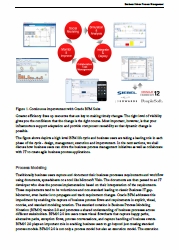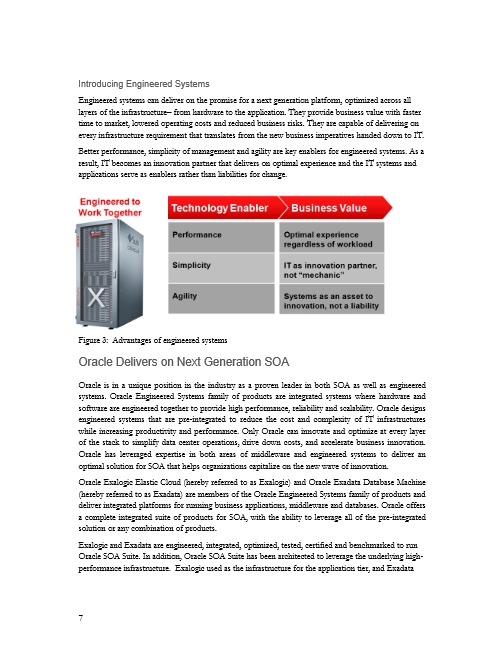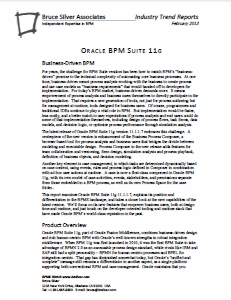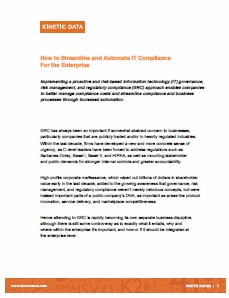Home / Resources
Resources
Discover a Wealth of BPM Knowledge and Expertise at BPMInstitute.org!

Error Tracking in Processes
Lean six sigma methodologies focus on removing wasteful activities from processes. However, at times we need process activities that come in handy when the expected process is not followed or are essential for fraud prevention and/or regulation. During my recent trip to India I came across two such examples, which made me think about the importance of compliance, fraud detection and customer centric activities that correct process deviation. While these activities may not further process KPI’s, they are certainly necessary. As in everything, it is all about striking a balance. Add too many such activities and your process may not be “lean”, not having any may lead to issues in other related processes. Let me describe both these examples.
Airport Security:

Business Driven Process Management
Changing market drivers, increasing competitive pressures, global presence and rapidly evolving customer needs are placing greater pressure on businesses to streamline their processes and take control. The “B” in BPM stands for Business, and these are the people who interact with the process on a regular basis, who understand the operational limitations, and who have ideas for improving the process. There is an increasing desire among the business users to get into the driver’s seat while creating business applications. Business users want to manage the design and execution of business processes. This is especially true for business processes where IT has been unable to keep pace with changing business needs. Oracle BPM enables business users to take control and drive improvements for their processes.

Building a Process Catalog: The Ongoing Journey
Recap
In the last article, I described a project to capture and catalog the major cross-functional processes within a 7-department business unit. The article provided an example of a modified Supplier, Input, Process, Output, Customer (SIPOC) diagram, discussed the problem statement, and described the steps we took to get buy-in from the Sr. Management of the business unit.
This time, we’ll explore the modified SIPOC in greater detail to illustrate how it is created, and how it can be used. We’ll discuss the catalog that is the inventory list of the SIPOC processes that have been diagrammed.

Organisation Structures: Do They Impact Project Success?
In my previous article “Business Politics before Projects Success: The Games Executives Play,” I propounded a view which stated that a Business Process Reengineering (BPR) project’s success or failure is highly influenced by a project having multiple accountable executives driving decisions on a project. In this article I will expand on this view by focussing on the concept of Organisation Structures and their influential impact on the BPR project domain.
Many definitions of Organisation Structures exist from various sources, however for the purposes of this article I will summarise and reconstruct the definition as follows:
“Organisation Structure refers to the lines of authority that articulate the controlling of decisions taken and the distribution of type of work performed based on the core purpose and strategic intent of the organisation.”

Next Generation Service Integration Platform
Proliferation of mobile devices, data explosion, and cloud enablement has caused a dramatic shift in IT. Organizations need to rethink their application infrastructures to accommodate increased processing speeds, heightened security and availability concerns for their applications, all while meeting lower ed total cost of ownership. Traditional infrastructures may not be sufficient to accommodate the diversity and complexity of integrations in this new era. Oracle SOA Suite on Oracle Exalogic Elastic Cloud & Oracle Exadata Database Machine is fine – tuned all the way from the hardware to the application layer, specifically for SOA to deliver on performance, business agility, lowered total cost of ownership and faster time to market, to become the next generation IT platform. Together these solutions provide complete and best – of – breed solutions for running and integrating high performance, mission critical applications.

Business is Changing, Can Your Applications Keep Up?
Mobile, social and big data analytics are opening doors.
In most organizations applications fall far behind the business needs. The gap between what application can deliver and what business needs keeps widening as soon as you implement an application. How can you make sure that that your applications are always aligned with business needs?
New age technologies like mobile, social, big data analytics are opening doors for opportunities that were never possible before. Are your applications creating a hurdle in leveraging these technologies? Are you able to deliver the right experience to your customers? In this session we will discuss how Business Process Management (BPM) helps not only in reducing the gap between applications and business needs but also how it enables extending the applications with capabilities like social and mobile.

Strategy Mapping and Business Architecture
At the Business Architecture Innovation Summit in Reston, VA this past March, a major challenge voiced by attendees was the difficulty they were experiencing in tying business strategy to business architecture. Because business strategy drives change, and business architecture enables change to become actionable, it follows that these two concepts should be closely aligned. But how does such alignment occur? The answer lies in ensuring that strategy mapping is adopted as an essential business architecture discipline that serves as the basis for integrating business goals, objectives and related action items into a comprehensive, business-driven perspective.

Industry Trends Report – Oracle BPM 11g
For years, the challenge for BPM Suite vendors has been how to match BPM’s “business-driven” promise to the technical complexity of automating core business processes. At one time, business-driven meant process analysts working with the business to create process and use case models as “business requirements” that would handed off to developers for implementation. For today’s BPM market, business-driven demands more. It means empowerment of process analysts and business users themselves to directly participate in the implementation. That requires a new generation of tools, not just for process authoring but for management at runtime, tools designed for business users. Of course, programmers and traditional IDEs continue to play a vital role in BPM.

Constraining the Theory of Constraints
Eliyahu M. Goldratt (1947-2011), an Israeli physicist turned business guru, established a highly esteemed reputation in business planning, through a series of three novels.
The use of novels to explain business and scientific matters was quite original for the time. The novels were “The Goal” (1984), “Theory of Constraints” (1990), and “Critical Chain” (1997).
Each explored aspects of his theories. His books were among the most controversial and thought-provoking of the closing decades of the 20th Century. They also affected Project Management strongly, through his “Critical Chain” thinking.

Deploying Business Strategy through Business Architecture
At the recent Business Architecture Innovation Summit in Reston, VA, one of the main challenges cited by attendees was the difficulty of aligning their business architecture with business strategy. While strategy mapping has historically been viewed as a standalone discipline, business architecture views strategy mapping as an integral component. Making your strategy actionable requires formalizing that strategy and aligning it to business architecture components that include capability, organization, value, information and initiatives. This article discusses strategy mapping frameworks and how to align those frameworks with related business architecture components to further prioritization, budgeting, portfolio planning and deployment.
Before we discuss how strategy mapping is incorporated into business architecture, let’s review a sampling of commonly used strategy mapping frameworks.

Five Ways for the Business Analyst to Score in BPM
Business Analysts provide a critical role in organizations. In fact, without this role, Business Owners and Developers must work together on a software project, which can be frustrating to both sides. Indeed, Business Owners may not get what they want and Developers may spend time building functionality that was not needed. OUCH! Why is that? Because the Business Owners and Developers have not learned to communicate to their mutual benefit. Enter the Business Analyst whose role is to define the needs and recommend solutions that deliver value to the stakeholders (e.g., Business Owners, users, customers, etc.)
According to the International Institute of Business Analysis (IIBA) BA’s do the following

Process Centric Enterprise Architecture: Towards an Agile Enterprise and Architecture
We live in a process powered world and the only thing the customer is interested in is WIFM (What’s in-it for me?). Customers are tired of hearing phrases such as “customer centric” and “world class” and “service oriented”. If your process outcomes are not aligned to the customer’s goals and you do not provide an excellent service (note: not a superior product) – guess what?
How does this affect Enterprise Architecture?
If an organisation doesn’t change its way of developing products for more than 40 years, do we expect that organisation to stay in business for very much longer?

Rules, Decisions and… Standards?
While pondering the difficulties still faced by enterprises employing a business rule management system (BRMS) and attempting to fully enable business users, I see yet another wave of standards coming our way. Standards for rules have been attempted in a variety of ways over the years. Each attempt provided some valuable insight but none really answered the call. This got me to thinking about the how far the field has come in terms of approach and execution but not in terms of standardization.
I have been fortunate to be involved with rules long enough to see a tremendous evolution in how the technologies are labeled, presented, integrated, and ultimately utilized. We have truly seen a sweeping move across the spectrum from purely academic research platforms to a boutique niche technology to its current place as a mainstream part of everyday business.

Why Business Architects Should Operate Outside EA
I’d like to make the case why business architects should operate outside of enterprise architecture (EA).
First, business architects are “big thinkers” and more business savvy than their EA counterparts. Their cultures clash. No matter how much EAs cast themselves as strategic thinkers, trusted advisors, or business partners there still seems a stigma that EA is only all about IT. This stigma stuck for decades and may help explain why IT-oriented EAs attracted only their kind. Meanwhile, recent converts to business architecture possess a distinct left- and right-brained aptitude for stating holistic viewpoints that are rigorous, well-understood, and fact-based. Some of them are ex-product managers, ex-business analysts, ex-sales, ex-entrepreneur, or simply ex-EAs or ex-IT pros who recently earned their MBAs and a light bulb went on, so to speak.

How to Streamline and Automate IT Compliance for the Enterprise
Implementing a proactive and risk-based information technology (IT) governance, risk management, and regulatory compliance (GRC) approach enables companies to better manage compliance costs and streamline compliance and business processes through increased automation.
GRC has always been an important if somewhat abstract concern to businesses, particularly companies that are publicly traded and/or in heavily regulated industries. Within the last decade, firms have developed a new and more concrete sense of urgency, as C-level leaders have been forced to address regulations such as Sarbanes-Oxley, Basel I, Basel II, and HIPAA, as well as mounting stakeholder and public demands for stronger internal controls and greater accountability.

Business Politics Before Projects Success: The Games Executives Play
Business Politics, Organisational Politics, Workplace Politics, irrespective of what noun you place in front of the word “Politics”, an association can be drawn that there will be some decisions taken within organisations that are based on robust debates that are based on biased agenda’s and contrasting behaviours and personalities. Belsky G and Gilovich T in their book, “Why Smart People Make Big Money Mistakes”, infers that it is human nature to make decisions based on our personalities, self-motivated objectives, ego’s, peer pressure, fear and regret irrespective of the irrationality of the outcome. The inference can be generalised against any decisions we as individuals need to make and is supported by Belsky G and Gilovich T when they succeeded statements made in their book with, “financial and or otherwise”.

BPM Competence: Are We There Yet?
Industry analysts such as Gartner have estimated that the size of the BPM market was well over $2.0 billion in 2011 and some industry observers believe that the global market for BPM will surpass $5 billion by 2017. However, a rapid increase in the size of the global BPM market does not necessarily mean that companies are getting the best value out of BPM. Accordingly, some senior managers are asking the very same question that parents going on a long drive with small children typically hear, which is – “Are we there yet?”

Neuroscience Sheds New Light on Change Management Strategies
Neuroscience articles are becoming common when looking for new changes in organization change management methods. These articles shed new light on how organizational change strategy and the approaches being use may need to be modified. Some current change management methods may be causing more harm than good during change efforts. Learning about neuroscience will shed a new reality on change challenges and change management practices used today.

The Importance of Being Earnest – About Enterprise Governance
If the purpose of Government is to serve the needs of the public, as many agree, the main objective of Governance is to ensure that public needs are efficiently, effectively and impartially served.
Governance mechanisms can help to achieve that objective by providing well-defined processes and structures for all aspects of procuring, deploying, and managing the use of government resources. A recent study by the World Bank found a strong relationship between good Governance and good Government performance. Other studies have revealed similar findings[1]. The purpose of this article is to underscore the need for investing adequate resources in (and leadership of) an agency’s Governance processes.

Business Architecture Takes Major Steps Toward Maturation
A year ago, I wrote a BA Bulletin article entitled “A Business Architecture Body of Knowledge.” In that article we examined the grassroots evolution of a body of knowledge and early signs of adoption. We spoke of selected success stories, business architecture as a worldwide phenomenon, the move towards business-driven business architecture and initial automation efforts. That article also discussed the rollout of release 1.0 of “A Guide to the Business Architecture Body of Knowledge” (BIZBOK™).[1] Since that time, business architecture has matured as a discipline and in practice, moving beyond simplistic discussions that were commonplace just a couple of years ago.













